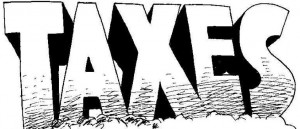Revenue bonds versus General Obligation bonds
Yavapai Community College employs two primary methods to secure additional funding for major capital projects.
 The first method involves the issuance of General Obligation (GO) bonds, a traditional avenue that necessitates a county-wide campaign to explain the necessity for such funds to Yavapai County voters. This approach mandates a transparent explanation of why substantial investments are directed toward certain areas within the County, potentially at the expense of others.
The first method involves the issuance of General Obligation (GO) bonds, a traditional avenue that necessitates a county-wide campaign to explain the necessity for such funds to Yavapai County voters. This approach mandates a transparent explanation of why substantial investments are directed toward certain areas within the County, potentially at the expense of others.
Approval or rejection of the GO bond request occurs through a county-wide election. While this route offers the potential of providing substantial funds for a variety of capital projects, there’s always the risk of taxpayers withholding approval.
The last time the Community College sought a GO bond was in 1999. That was for $69.5 million. The pros and cons of expending that much money for a bond to support capital construction and renovation was discussed and eventually approved in a County-wide election.
The 1999 bond contained provisions for capital projects at the Sedona Center and the Verde Valley Campus, while a majority of the bond issue went to the Prescott side of Mingus Mountain. It is noteworthy that this bond was fully paid off by taxpayers via a secondary property tax in 2022.
The second method, known as the “revenue bond” approach, allows the College to avoid much public discourse, if any, when targeting revenue bonds for specific renovation or construction projects. This process requires only three votes from the District Governing Board for approval, sidestepping the need for public explanation and validation. While advantageous for the College’s executives due to its ease of implementation, this method is subject to oversight solely by the District Governing Board, with minimal public awareness or input.
A revenue bond issue needs only three votes of the five member District Governing Board. Practically, because most of the major projects needed for capital funding support are on the west side of the County, the three member-majority representing the west side of the county have little difficulty in approving a revenue bond issue.
Difference in payment: Revenue bonds, unlike GO bonds, are repaid from sources such as tuition, fees, rentals, and other charges, rather than directly from taxpayer funds. GO bonds are paid through a secondary property tax.
However, the repayment method associated with Revenue bonds indirectly impacts County taxpayers. It occurs because of the potential revenue reallocation of sources of revenue within the College’s budget. This shift may necessitate compensatory measures, such as increasing the county-wide tax rate, subject to approval by the District Governing Board major of three, without formal public recourse.
Currently, the Community College is considering issuing a $14 million revenue bond to finance anticipated 2024-2025 capital expenditures. It is also considering extending the payoff period of existing revenue bonds. The decision to extend the payoff period would prolong the financial obligation, but give the Community College additional cash.
It is noteworthy that the current revenue bonds were anticipated to be paid off within the next four years.
It is also noteworthy that there’s a proposal to raise the property tax rate incrementally by a cumulative total of 4%, signaling potential future implications for County taxpayers.
SUMMARY: Yavapai Community College’s methods for raising money for major capital projects:
- General Obligation (GO) Bonds:
- The traditional approach involves issuing GO bonds.
- However, there are specific requirements for doing so along with practical considerations:
- A county-wide campaign of sorts is necessary to explain the need for funds to voters across Yavapai County.
- Community College executives must justify why funds are allocated heavily to one part of the county, potentially affecting another part.
- Voters then approve or reject the bond request in a county-wide election.
- The last GO bond sought by the Community College was in 1999, totaling $69.5 million.
- Despite risks, it was eventually approved in a county-wide election.
- Notably, the 1999 bond funded capital projects at the Sedona Center and the Verde Valley Campus, with a majority going to the Prescott side of Mingus Mountain. Taxpayers fully paid off this bond via a secondary property tax in 2022.
- Revenue Bonds:
- The “revenue bond” approach allows pinpointing specific renovation or construction needs.
- Approval requires only three votes from the District Governing Board.
- Unlike GO bonds, there’s no need to explain to the public or hold a public vote.
- This process currently appears favored by Yavapai Community College executives for obtaining capital dollars.
- The only check on revenue bond issuance is the five-member District Governing Board because it requires only three members to approve the issuance.
- The only check on increasing the tax rate to make up for money now going to pay off the revenue bonds from non-tax sources is the District Governing Board. It takes only a majority to approve a tax rate hike.
